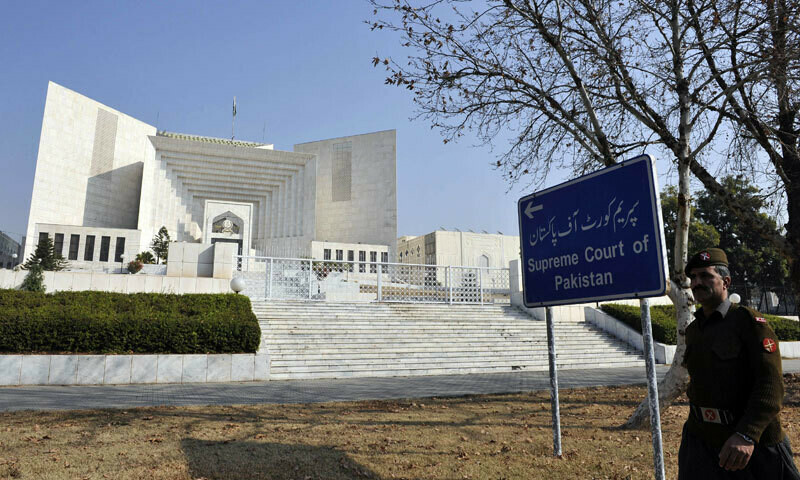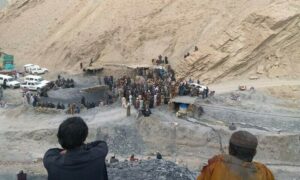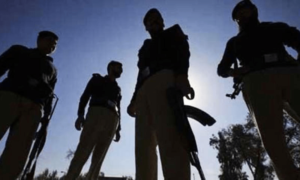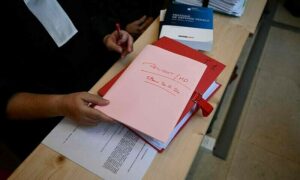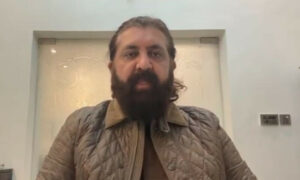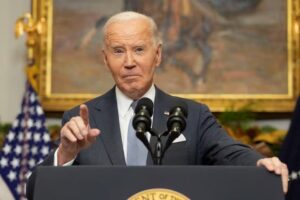A Supreme Court constitutional bench on Thursday questioned why the civilians involved in the riots on May 9 were “specifically” tried under the military courts contrary to precedent.
On December 13, the SC’s constitutional bench conditionally allowed military courts to pronounce reserved verdicts of 85 civilians who were still in custody for their alleged involvement in the May 9 riots in 2023.
On Dec 21, military courts sentenced 25 civilians to prison terms ranging from two to 10 years for their involvement in violent attacks on military installations during the May 9 riots. A week later, another 60 civilians were handed jail terms ranging from two to 10 years for their involvement in the nationwide riots.
On January 2, the mercy petitions of 19 convicts involved in the May 9 cases were accepted on humanitarian grounds.
While hearing the appeals against the decision to try civilians in military courts on Tuesday, Justice Jamal Khan Mandokhail said it was not the prerogative of executives to “play the role of the judiciary”.
Today, a seven-member constitutional bench headed by Justice Aminuddin Khan resumed the hearing of the intracourt appeal against the decision to try civilians in military court.
Justice Syed Hasan Azhar Rizvi said that the country had faced terrorists attack in the past, however, terrorists involved were tried in ordinary courts.
“Tell us, where [were the hearings for the] attacks held?” he asked, adding that if the terrorists in those attacks were tried in ordinary courts, “what did the people [involved in] May 9 do to go to military courts?”
Justice Mandokhail, while referring to the difference in decisions between the military and antiterrorism courts, asked whether “special evidence” was being presented in the military trials.
During the hearing, Advocate Khawaja Haris, who appeared as the defence ministry’s lawyer, read out the five-member SC decision declaring military trials of civilians null and void.
He posited that, according to the order, all were fundamental rights which were explained.
The constitutional bench questioned the military trial of the “specific” people accused of May 9.
Justice Mussarat Hilali asked, “Where the decision was taken as to who would be tried in the military courts and who would not?”
Justice Muhammad Ali Mazhar remarked that since the first information report (FIR) filed against the May 9 culprits was bundled together, “Where did the distinction come from for some to be tried in the ATC while others to be tried in the military courts?”
Justice Naeem Akhtar Afghan asked the defence ministry’s lawyer how many people were accused in the May 9 events. He also inquired whether any ATC order was issued against people tried by the military courts.
Justice Mandokhail questioned the defence ministry’s lawyers regarding who initiated the process of taking someone under military custody. Meanwhile, Justice Hilali asked for an example where the military trial of a civilian was held without suspending the constitution.
“There were terrorist attacks on various installations including General Headquarters, and Karachi base, tell us where the (hearing of these) attacks were held?” Justice Rizvi asked.
“There was a case of conspiracy to hijack an army chief’s plane, that case was tried in an ordinary court, and you were the lawyer of one of the parties,” he said.
“If that trial was carried out in the normal courts then what did the May 9 people do?”
Meanwhile, Justice Mazhar asked for an FIR in each one of the cases.
“The accused is being acquitted by the anti-terrorism court and then is being sentenced by the military court. Is any specific evidence being provided to the military courts?” Justice Mandokhail asked.
“Why are anti-terrorism courts not being strengthened,” he asked.
more to follow

